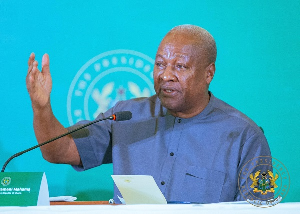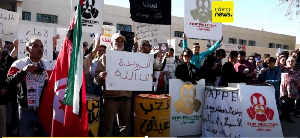Dr Kwaku Afriyie, Minister of Health, on Monday asked donors and founders of palliative care and hospice to consider funding and to expand their activities in developing countries to enable patients bound to die do so bravely through consolation.
He said: "The development of palliative and hospice care is essential to look after people suffering from HIV/AIDS and cancer and those terminally ill."
Palliative care is an approach to caring for people for whom cure is no longer possible, taking into account their physical, emotional, psychological and spiritual needs.
The Minister said there was no palliative or hospice care movement in Ghana and patients with terminal diseases go through excruciating pain without solace and emotional support.
Dr Afriyie was speaking at a two-day workshop, organized by the Hospice Ghana, a non-governmental organisation (NGO) that aims to train professional medical, health and social workers in given palliative care, which was on the theme: "Providing Palliative Care For The Terminally-Ill."
He said with the absence of such a care "many of such patients die, needlessly without proper dignity or preparation".
He said palliative care has been a traditional way of looking after patients whose disease did not respond to curative treatment and were then consoled, to face death in dignity in many developed countries.
Dr Afriyie said the Government recognized the private sector as the engine of growth and would, therefore, encourage private sector participation in health care delivery.
He said the World Health Organization (WHO) recommended three measures if sustainable and appropriate palliative care services were to meet the needs of the poorest.
The three measures are: Formally adopting a national policy on palliative care; outlining how services would develop in line with the health service and promoting standards of care with a commitment to train all health workers in managing pain while informing and educating the public on pain control.
The other policy measure is to ensure that the necessary drugs for pain control are available and for instance appropriately trained professionals prescribing drugs such as morphine.
Dr Averil Fountain, Representative of the British Executive Services Overseas (BESO), said the UK forum for hospice and palliative care and BESO were currently working together on a partnership capacity-building project to develop palliative care in West Africa, especially Ghana, Nigeria, Gambia, Cameroon and Sierra Leone.
BESO is a development agency that offers professional advice to organizations that could not afford commercial consultants.
Dr Fountain, who is also a resource person at the workshop, said the programme would provide opportunities for health professionals to network with each other and share knowledge and expertise between themselves to develop capacity of organizations to provide palliative care.
Mr Isaac Dweber Friph, Director of Hospice Ghana, said the collapse of the extended family system and the influence of western cultures on the lives of Ghanaians have resulted in retirees living alone and many aged people have little or no care at all.
He said Hospice Ghana was interested in bringing back to life the practice of palliative care and to further develop people's knowledge and exploration of aspects of care and support required by those who were terminally-ill.
General News of Monday, 24 November 2003
Source: GNA












